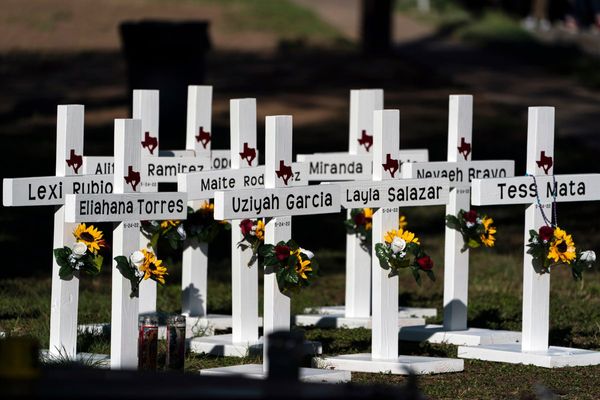
“It’s as if you are pressing your nose against the sweet-shop window of life, and you’re never ever going to be on the other side.” Jody Day is describing involuntary childlessness. The author and founder of Gateway Women, a global friendship, support and advocacy network for childless women, tells me about what she describes as the “friendship apocalypse” that can happen between women when one is able to have the children she dreamed of and the other doesn’t. After realising that children weren’t going to happen for her as a result of “social infertility” (which means not having children due to circumstance rather than medical issues and is the most common reason for childlessness), Day experienced profound grief. In the process, she lost friends.
“I began to find it incredibly painful to be around my friends with children. And I also realised that I had been the one doing the work to maintain friendships. And when I stopped doing that, when I stopped keeping up with their children’s birthdays, with likes on Facebook, with just making sure I was included – what happened? Crickets. It was like I had dropped off the planet. I heard from practically nobody. It was an incredibly lonely period of my life.”
Parenting can be hard, but I’ve often reflected that it’s far, far harder to want a baby and not to have one. This grief is still stigmatised – when Day first started talking about her experience, she was the only one, yet one-fifth of British women will be childless by the time they reach their early 40s.
In the course of researching this column, many women got in touch to reflect on how it has impacted their relationships, from both sides of the equation. “It is difficult feeling outside the club, to perpetually be the group’s auntie and uncle, to watch friends announce pregnancies and not feel churned up by resentment and jealousy, ugly emotions I feel guilty for having,” one tells me. Another woman whose friend is going through infertility says: “It’s so hard to know what to say, because I am conscious not to be too positive or negative, as the whole process is highly unpredictable. She is so sad all of the time … Honestly, I don’t think I’ve ever wanted anything as much as she wants this, and it’s just heartbreaking to watch.”
The gulf that can emerge during our childbearing years can only deepen with time, as the childless friend slips from the consciousness of the busy parent, or an awkwardness becomes insurmountable, to the point where the two parties are simply performing friendship because they have stopped telling one another the truth. Part of the reason is that envy is such an uncomfortable emotion to admit to. How do you say to someone “I desperately want what you have” without making them feel uncomfortable? How do you admit feeling angry and resentful at the unfairness of life? “There’s something really cold at the heart of envy that, particularly as women, we don’t want to know about. We’ve been culturally conditioned to be nice,” Day says.
“We’re just not raised, as women, to know how to deal with such conflict within our friendships,” says Claire Cohen, author of BFF? The Truth About Female Friendship, “So when it occurs, we end up losing friendships completely. And infertility was one of the areas that seemed to be happening with tragic regularity.” This is why I am trying to be mindful of my friends who don’t have children – I don’t want to lose them by being one of those tactless parents that Cohen mentions, who says things such as “At least you can have a lie in!” which amounts, essentially, to a denial of their grief.
And it is grief. Day reminds me that a woman in her 30s who is struggling with involuntary childlessness is only at the beginning of a journey that may mean coming to terms with a different kind of life, from not being involved with the schooling and education system, to not being part of a community of mothers. She will have to grieve not being a grandmother, and may not be treated as a proper adult by her own parents. Talking to Day helps me understand that to not have children when you want them desperately is as profound and transformative as having them, yet this is still rarely recognised despite childless women making up a large part of the population. Day’s wisdom is part of the reason that her book Living the Life Unexpected: How to find hope, meaning and a fulfilling future without children is recommended by doctors and therapists.
As well as encouraging crucial friendships between childless women to help them in their grief, Day wants to help mothers be better friends to them. This involves recognising that you might not be the best person for them to be around at that time. “But keep inviting them,” she says. “If in doubt, never send any baby photos to anyone unless they ask for them. She might say no to coming to birthday parties … don’t presume that they don’t want to be part of your life. They just may not be able to cope with it this time, or this week, or this month, or this year.”
Cohen says acknowledging a friend’s grief is key, but also notes that infertility is an incredibly difficult thing to be honest about. It remains the fact that parenthood dominates the discourse in a way that a life without much-wanted babies does not. For that to change, parents need to be more comfortable having these difficult conversations, and be less wrapped up in our own lives.
What’s working
Along with one other, the baby received special dispensation to attend an otherwise child-free wedding at the weekend. Apart from some unfortunate shouting during the speeches (he was promptly removed), he had a great time, managing to drop off during an especially raucous cèilidh. I’m so grateful to my friends Ed and Anna for including him, it meant a lot.
What’s not
I still haven’t managed to paint my toenails (see last week’s column), but I did manage to get a haircut half an hour before closing time by evilly saying I only wanted my fringe doing and then, once he’d agreed, showing the hairdresser a photo of Dakota Johnson. It started karmically raining the moment I left the salon, necessitating a sprint home. Arriving with still-perfect hair, I picked the baby up and he was promptly sick in it.
Rhiannon Lucy Cosslett is a Guardian columnist and author







